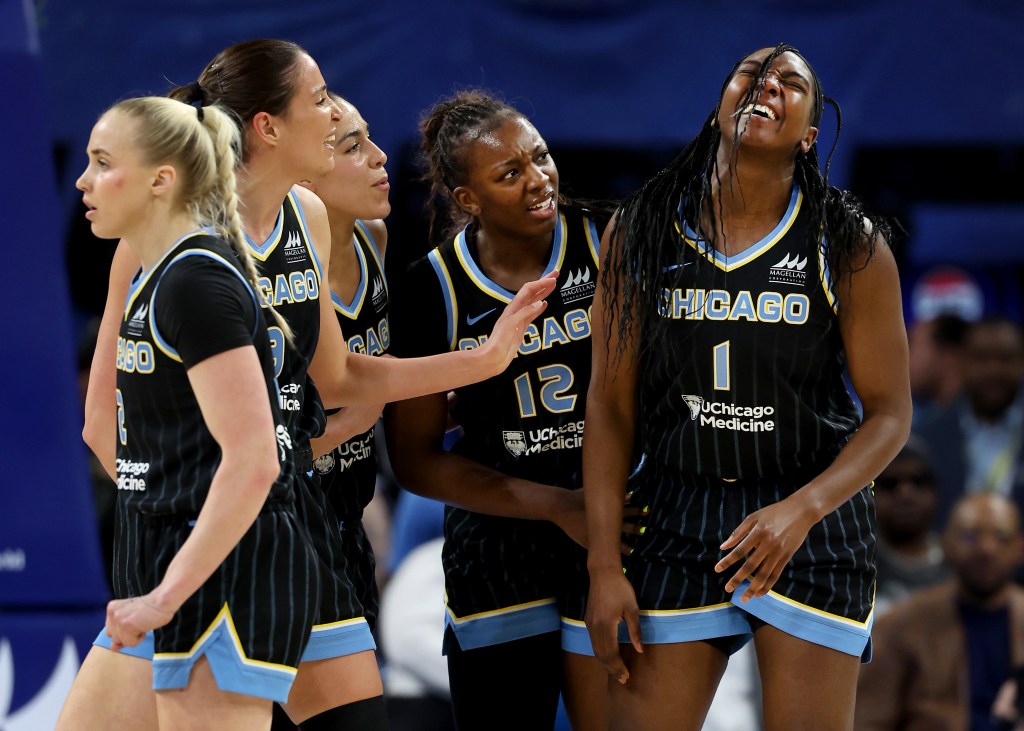The WNBA is on the cusp of a transformative era, marked by expansion and evolving player-league dynamics. For players like Chicago Sky center and WNBPA secretary Elizabeth Williams, this growth signifies a crucial turning point, necessitating changes in collective bargaining agreements. The league’s expansion, driven by rising viewership, attendance, and revenue, empowers the players’ union to advocate for improved conditions and contracts. This article explores the reactions of Chicago Sky players to the WNBA’s expansion and delves into the complexities of the ongoing CBA negotiations.
The WNBPA’s rejection of the league’s initial CBA proposal underscores a fundamental point: growth must be shared universally, benefiting both the league and its players. Sky forward Angel Reese and Williams express excitement tempered by the realities of CBA negotiations. Key issues include salary cap increases, enhanced benefits, and improved working conditions, all aimed at supporting player well-being and league competitiveness. This article examines the perspectives of key figures, the core issues at stake, and the potential implications for the future of women’s professional basketball.
WNBA Expansion: A Sign of Growth
The WNBA’s announcement of expansion teams in Philadelphia, Cleveland, and Detroit, in addition to Toronto and Portland, signals significant growth. This expansion reflects the league’s increasing popularity and financial success, providing opportunities for more players to join the league. Elizabeth Williams views this growth as a validation of the players’ demands for improved contracts and benefits.
However, reactions to the expansion have been mixed. While some, like Angel Reese and Elizabeth Williams, express enthusiasm, others have voiced concerns. Despite varied opinions, the overarching sentiment is that expansion presents an opportunity to elevate the league and provide more avenues for talented players. The addition of these teams can enhance the league’s reach and fan base, contributing to its long-term viability.
“The league is saying that we’re growing, we’re expanding, business is booming,” Williams said. “That’s a sign to us that some of the things that we’re asking for are not unrealistic.”
CBA Negotiations: Seeking Fair Terms
The WNBPA’s rejection of the initial CBA proposal highlights the significant gap between the league’s offer and the players’ expectations. Players are advocating for a substantial increase in the salary cap, which currently stands at just over $1.5 million per team. In contrast, the minimum salary for an NBA rookie contract is approximately $1.1 million. The disparity underscores the financial challenges faced by WNBA players.
Beyond salary, players are also pushing for improved benefits and working conditions. This includes expanding team rosters, providing better healthcare, and enhancing travel accommodations. Satou Sabally, a player representative for the Phoenix Mercury, described the initial offer as a “slap in the face,” reflecting the players’ disappointment and determination to secure a fairer agreement. The current CBA expires on October 31, intensifying the pressure to reach a resolution before the next season.
Players’ Perspectives on Expansion and CBA
Angel Reese and Elizabeth Williams have voiced their support for the WNBA’s expansion, while acknowledging the importance of securing a fair CBA. Reese emphasized the need to provide opportunities for more players, given the limited roster spots and the abundance of talent. Williams highlighted the importance of the league recognizing the players’ contributions to its growth.
“Obviously (we’re) super excited to continue to grow and more players can be in this league, because this league is great,” Reese said. “There are a lot of great players out there that don’t have an opportunity to play right now.” These perspectives underscore the dual focus on league expansion and player empowerment.
Key Issues in CBA Negotiations
The primary issues in the CBA negotiations include salary cap increases, enhanced benefits, and improved working conditions. Players are seeking a significant hike in the salary cap to better reflect the league’s financial growth. They are also advocating for increased benefits such as comprehensive healthcare, improved travel arrangements, and expanded roster sizes. Currently capped at 12 players per team, expanding rosters is a key point of contention.
Coaches like Tyler Marsh support expanding rosters to enhance player durability and provide more rotation options. “It helps a lot with durability,” Marsh said. “Being able to have another roster spot or two allows you to be able to rest some players at times.” These changes aim to create a more sustainable and supportive environment for WNBA players.
Potential Outcomes and Implications
The outcome of the CBA negotiations will significantly impact the future of the WNBA. A successful agreement could lead to improved player satisfaction, enhanced league competitiveness, and continued growth. Conversely, a failure to reach a compromise could result in a work stoppage, potentially disrupting the league’s momentum and alienating fans. The negotiations are pivotal for shaping the landscape of professional women’s basketball.
The current CBA expires on October 31, leaving a limited window for both sides to reach an agreement. The months leading up to this deadline will be critical in determining whether the WNBA can continue its upward trajectory or face potential setbacks. The league’s expansion plans hinge on creating a stable and supportive environment for its players.
Conclusion: A Pivotal Moment for the WNBA
The WNBA stands at a crucial juncture, with expansion plans and CBA negotiations poised to reshape the league’s future. The perspectives of players like Elizabeth Williams and Angel Reese highlight the importance of balancing growth with player empowerment. As the league expands, ensuring fair contracts, enhanced benefits, and improved working conditions is essential for attracting and retaining top talent. The upcoming months will be decisive in determining whether the WNBA can capitalize on its growing popularity and establish a sustainable model for long-term success.
The outcome of the CBA negotiations will not only impact the players but also influence the league’s overall competitiveness and appeal. A collaborative approach that addresses the players’ concerns will pave the way for a brighter future, marked by continued growth and greater recognition for women’s basketball. The WNBA’s ability to navigate these challenges will define its legacy and solidify its place in the sports landscape.

Leave a Reply